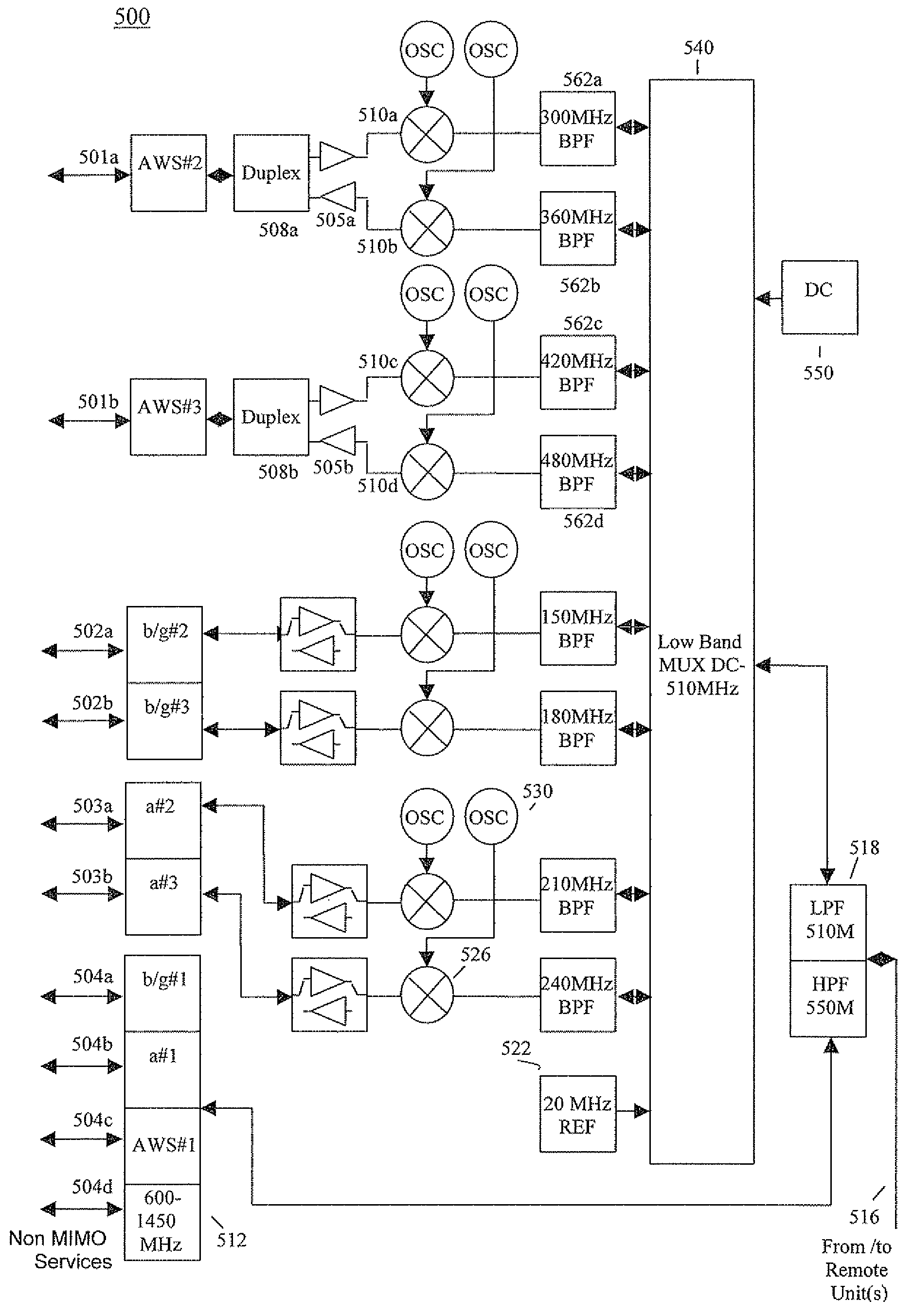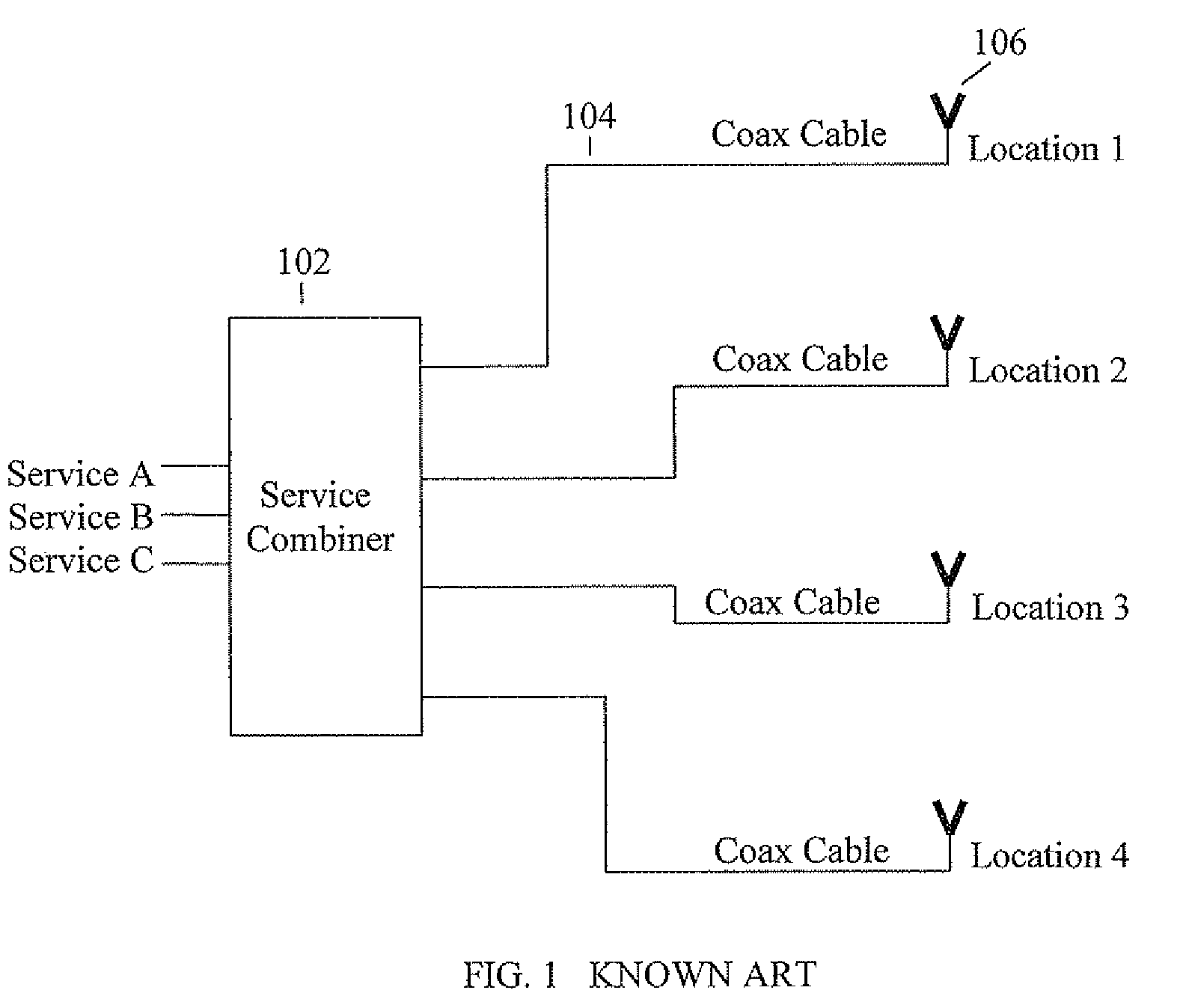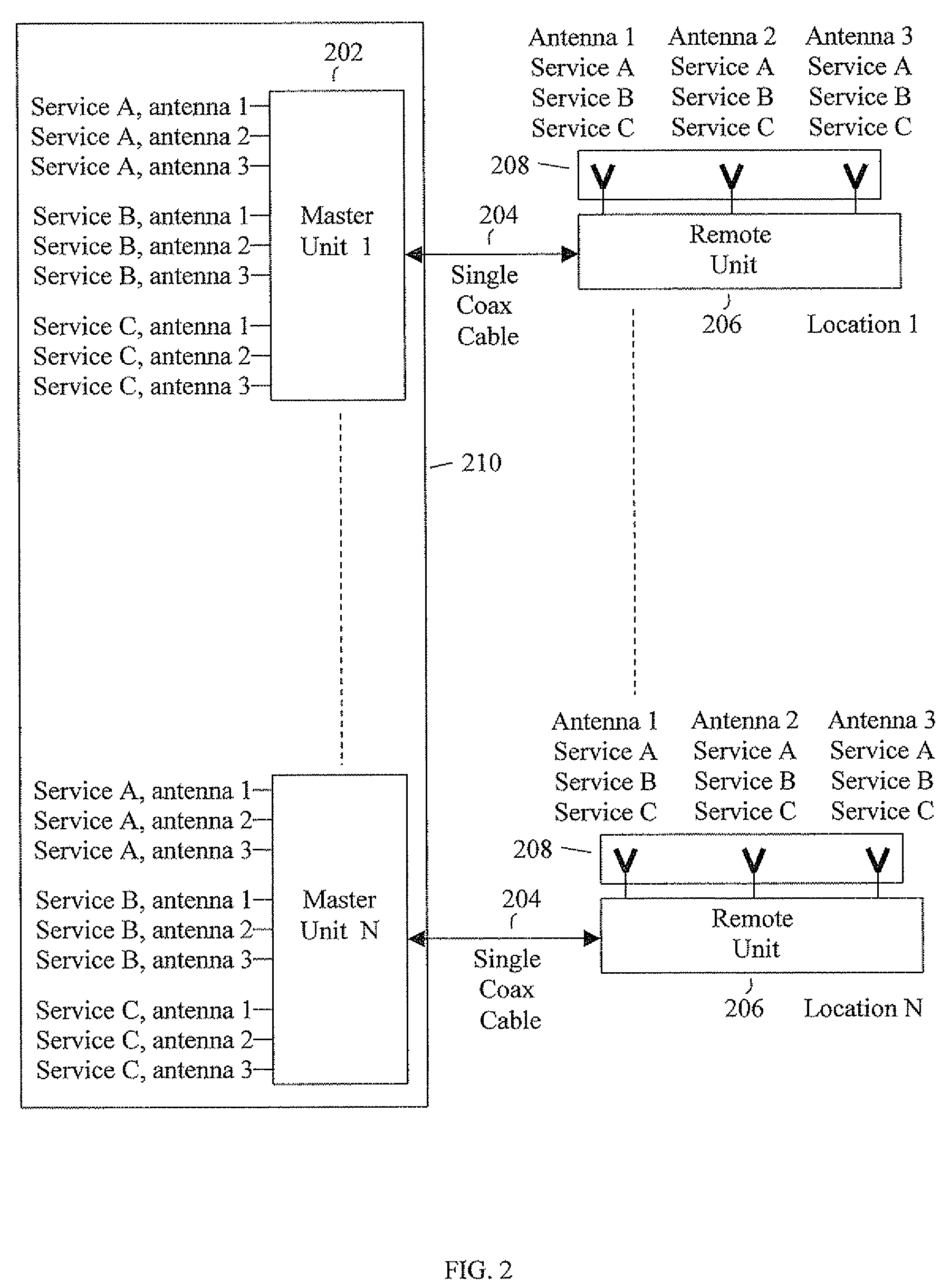MIMO-adapted distributed antenna system
a distributed antenna and antenna technology, applied in the direction of direction finders using radio waves, sites, instruments, etc., can solve the problems of significant increase in the amount of coaxial cables required, significant increase in installation cost and complexity, and achieve accurate reconstruction of mimo signals
- Summary
- Abstract
- Description
- Claims
- Application Information
AI Technical Summary
Benefits of technology
Problems solved by technology
Method used
Image
Examples
Embodiment Construction
[0030]The invention is based on the operation of two main units: Master and Remote. A Master unit is the unit to which the signals of the services are interfaced. A Remote unit is the unit to which the antennas are connected. A basic system includes at least one set of MIMO antennas, one Master unit and one Remote unit. The Master units are usually co-located at a central distribution point and interfaced, directly of through other distribution means, to the antenna port of the radio equipment which provides the services. The Remote units are located where coverage is required. The MIMO antennas may be positioned proximate to or attached directly to the Remote unit. When proximate, they are connected thereto by appropriate connectors. In the terminology used herein, the Master unit is associated with one endpoint while the Remote unit is associated with another endpoint of the DAS network.
[0031]The Master unit is used to down-convert the signals in the Forward path and up-convert th...
PUM
 Login to View More
Login to View More Abstract
Description
Claims
Application Information
 Login to View More
Login to View More - R&D
- Intellectual Property
- Life Sciences
- Materials
- Tech Scout
- Unparalleled Data Quality
- Higher Quality Content
- 60% Fewer Hallucinations
Browse by: Latest US Patents, China's latest patents, Technical Efficacy Thesaurus, Application Domain, Technology Topic, Popular Technical Reports.
© 2025 PatSnap. All rights reserved.Legal|Privacy policy|Modern Slavery Act Transparency Statement|Sitemap|About US| Contact US: help@patsnap.com



